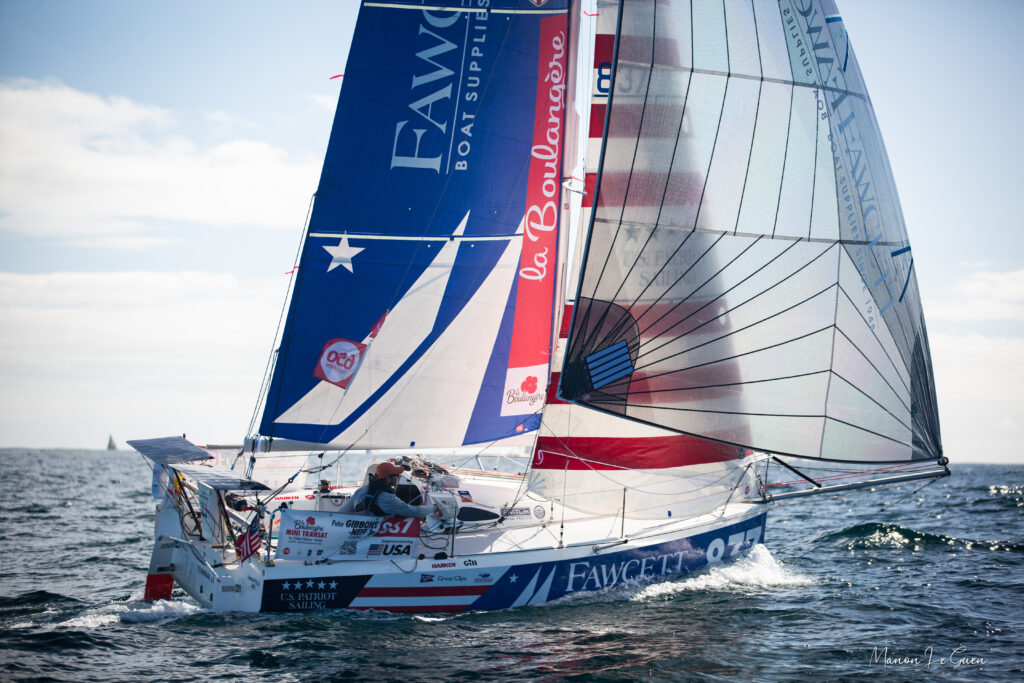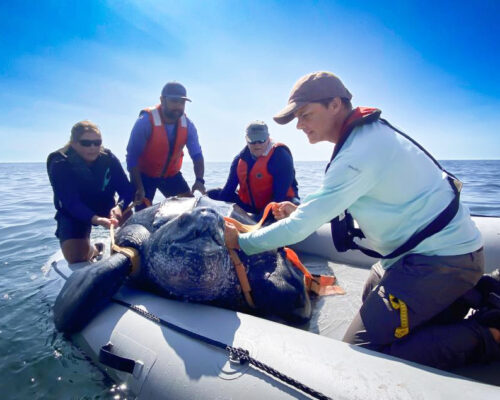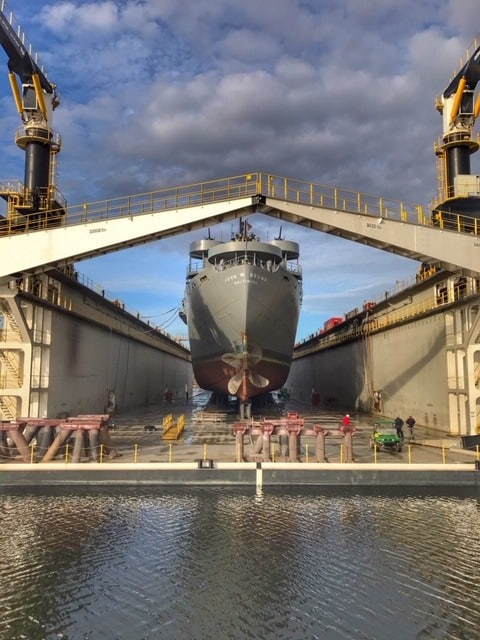Annapolis sailor Peter Gibbons-Neff recently completed his attempt at the 2023 Mini Transat race, a 4,020-nautical mile sailboat race between France and Guadaloupe. The Mini Transat is not named as such for the size of its course, but instead for the length of boats who attempt it: to solo sail across the Atlantic Ocean in 6.5-meter boats without assistance, sailors themselves need to be colossal.
For Gibbons-Neff, who completed the race in 19 days, the Mini Transat was the culmination of more than three years of preparation and training, as you may remember from this Chesapeake Bay Magazine report.
“It was an emotional experience, from start to finish,” he says, speaking from a courtyard in the Pentagon, newly shaven and in uniform once again. “It wasn’t until I was out there, on the ocean, that I started thinking ‘I can do this.’ I wish I had more confidence going into the race, because I was more prepared than I thought I was.”
The 2023 edition of the race involved 90 21-foot Mini Class boats and was broken into two legs: the first 1,350 nautical miles stretched between Les Sables d’Olonne in France and the Canaries off the west coast of Morocco; the second leg stretched 2,700 nautical miles between the Canaries and Guadeloupe in the Caribbean.
During the first leg, Gibbons-Neff remained tight with his fleet as they dealt with a front off the coast of Spain. Winds in excess of 40 knots and 10-foot seas led to a dismasting for another competitor, but proved a strong training ground for Gibbons-Neff.
“I was happy to have gotten through that weather, knowing that it’s one of the hardest parts of the Mini Transat, and it’s where most boats abandon the race.”
It was during the second leg, however, that the wheels (or rather the rudder) started to come off.
“In the first five days, the entire fleet was within five miles and I could see running lights on the horizon, crossing paths of other boats a hundred miles offshore. Going into the fifth day, I jibed west in 22-25 knots of breeze. I was surfing down waves, having a great ride, when I hit something in the water and took two big chunks out of the rudder. It was trailing in the water three feet behind the boat.”
While he certainly had cause to be upset, the bigger picture prevailed.
“The rudder was dragging behind the boat, still attached to the tiller bar. I slowed the boat down and made sure I wasn’t going to sink 400 miles off the coast of Africa. And that’s when I thought, ‘Do I sail another 2000+ miles without a rudder? Or do I sail 275 miles to Cape Verde and make repairs?’”
Gibbons Neff chose the latter. “I was angry and frustrated, but then you go into immediate action. There’s danger in the sport, but once it happens, you do whatever it takes not to put yourself in even more danger.”
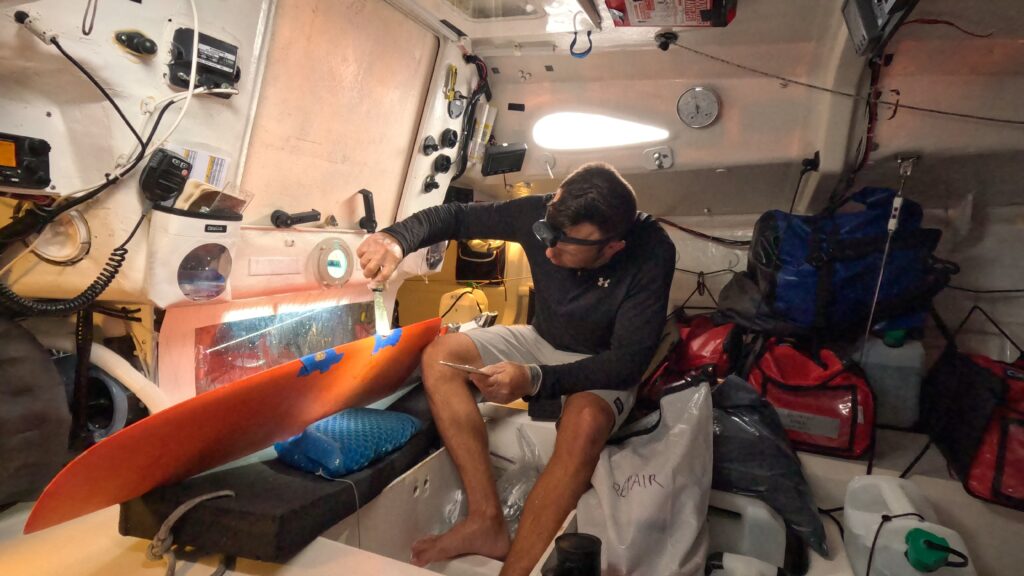
The rerouting took Gibbons-Neff a day and a half, and the rudder was repaired within a few hours. But getting back on the course was an emotional letdown. Whereas he was once sailing within the fleet, now he didn’t see another boat for two weeks.
“I was mad at myself, but I didn’t give up. I kept pushing the boat, doing 200-plus-mile days, keeping the spinnaker up when it was blowing 25 knots. I was on the verge of wiping out day and night for weeks.”
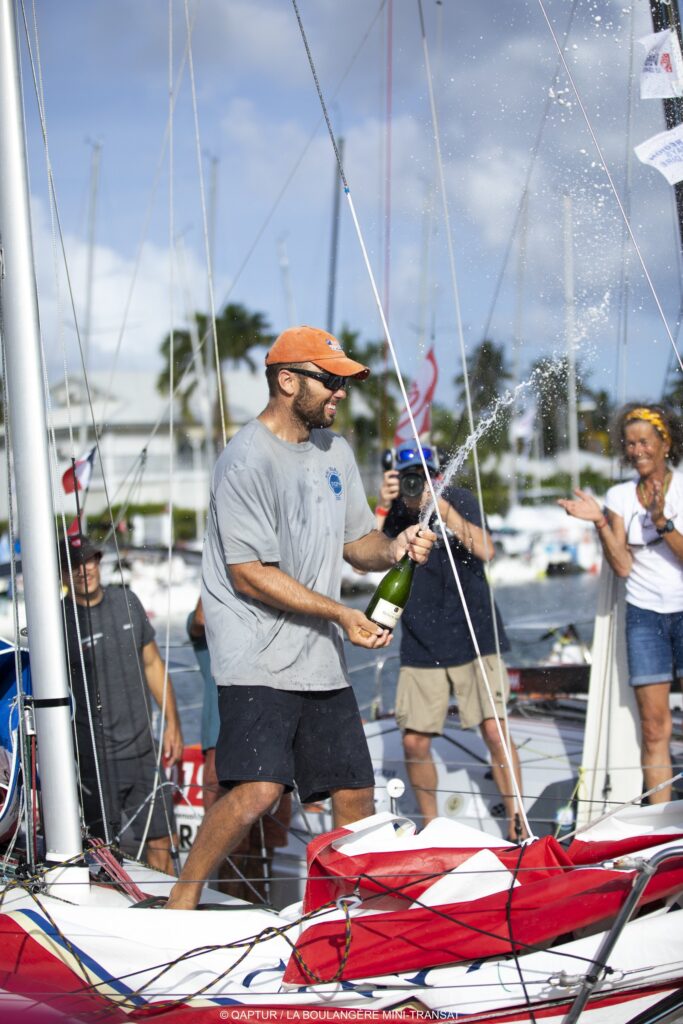
Gibbons-Neff ended up climbing back into the fleet and finished 57th out of 58 finishers despite losing so much time with the rudder. His determination and comeback are signs of both his own personal drive, but also the responsibility he’s felt as a member of the US Patriot Sailing Team.
“I realized that, yes, the scoring went out the window,” he says. “I just didn’t want to let people down…I realized I was still completing it, racing across the ocean solo in a small boat.”
Those people who were on Gibbons-Neff’s mind were the other members of the US Patriot Sailing Team, veterans who have used sailing to help transition back into civilian life after service. To see Gibbons-Neff competing on the world stage offers a strong example of what is possible post-military career.
“There’s a psychological impact of spending 5-20 years in an organization, then getting out and losing your routine, trying to connect in an office space where people don’t have the same experiences as you do,” says Peter Quinn, founder and director of US Patriot Sailing. “Coping mechanisms are built from camaraderie, and competitive sailing and offshore racing provides a strong motivator.”
Today, the US Patriot Sailing Team has over 400 members, and Gibbons-Neff hopes that his Mini Transat finish will help bring in more.
“We always have room for veterans to come sailing,” he says. “We have a team for you.”

